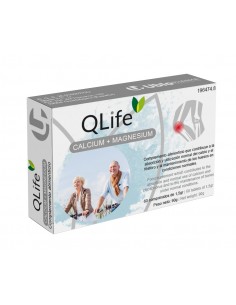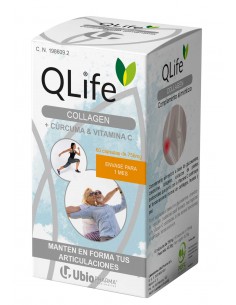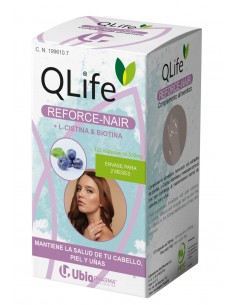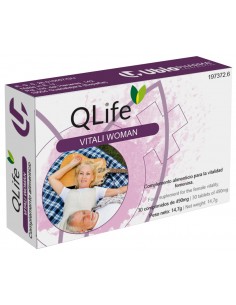Let's lose the fear of menopause.

The menopause is that stage that generates so much uncertainty and concern for women. It is still a taboo subject, and many women are resigned to seeing it as "what's to be done". But this should not be the case. It is a stage common to all women in which a series of changes occur, which, if we are aware of them and face them, should not necessarily worsen the quality of a woman's life.
What is menopause?
The menopause is when a woman stops menstruating for good. It occurs with the loss of follicular function and the hormonal decline of oestrogen, progesterone and testosterone.
Strictly speaking, the menopause is the last day of menstruation, but it is true that the physical and hormonal changes associated with this stage do not occur from one day to the next, but rather it is a phase known as perimenopause.
What happens during perimenopause?
Perimenopause is the phase before the loss of menstrual periods. This phase includes years in which menstruation becomes more irregular. There may be months without ovulation, more continuous periods, and also changes in the amount of flow. Menopausal symptoms also sometimes appear, such as hot flushes or emotional changes, which we will discuss later.
When does the menopause begin?
Each woman is different, and each one of us goes through it at a different age. But from the age of 45 onwards, the perimenopause usually begins, and menopause arrives at around 50-55 years of age.
Is it possible to reach the menopause earlier?
Yes, there are women who reach the menopause earlier and this is known as early menopause. It usually occurs in women who have suffered premature ovarian failure, who have had an ovary removed or who have suffered from an illness for which they have had to receive chemotherapy treatment.
What are the symptoms of menopause?
During the menopause, women begin to experience a series of physical and emotional changes. Again, not all women will experience them, and not all women will experience them to the same degree or at the same frequency.
The generic symptoms are:
- Hot flushes
- Insomnia and sleep disorders
- Joint pain
- Vaginal dryness and decreased libido
- Worsening of hair, skin and nails
- Emotional changes
- Concentration problems
- Weight gain
- Loss of bone mass
At first glance, so many symptoms are a bit imposing, but let's not be alarmed - they don't all have to touch you, woman! Let's take it one step at a time. The symptoms are associated with decreased hormone production, and are not a disease. Some of them can be prevented, and others can be treated to reduce their impact.
How to make the menopause a good time?
First of all, don't resign yourself to accepting this stage with everything that comes with it. Take advantage of it to take care of yourself and dedicate more time to yourself. Lean on your close circle to share what you are going through and you will discover that you are not the only one. And bear in mind that there are natural and pharmacological treatments to alleviate the symptoms, you just have to go to the specialists and ask them for help.
We recommend the following food supplements:
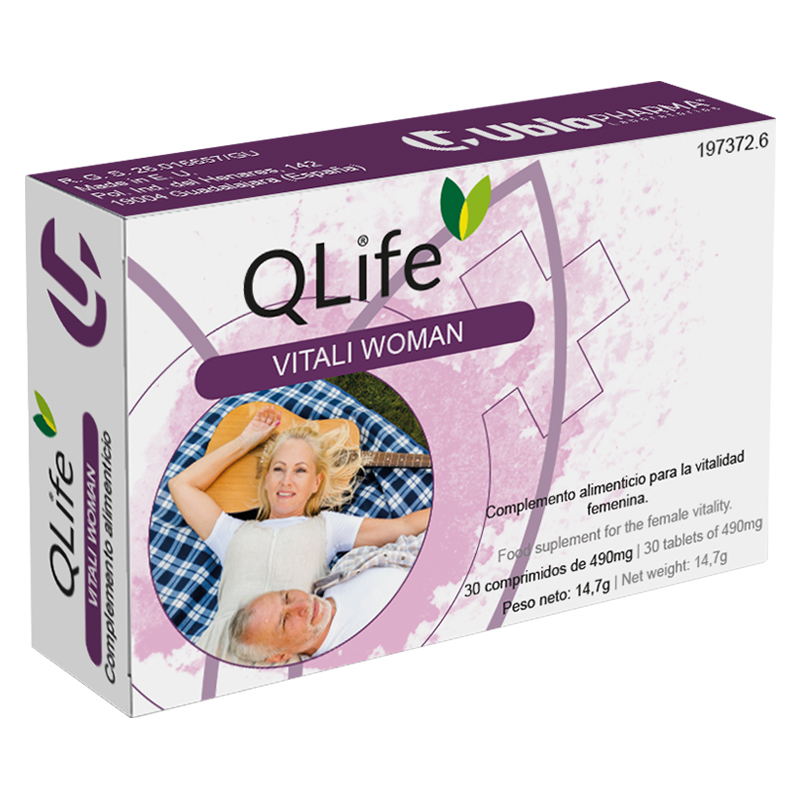 QLife Vitali Woman for female vitality.
QLife Vitali Woman for female vitality.
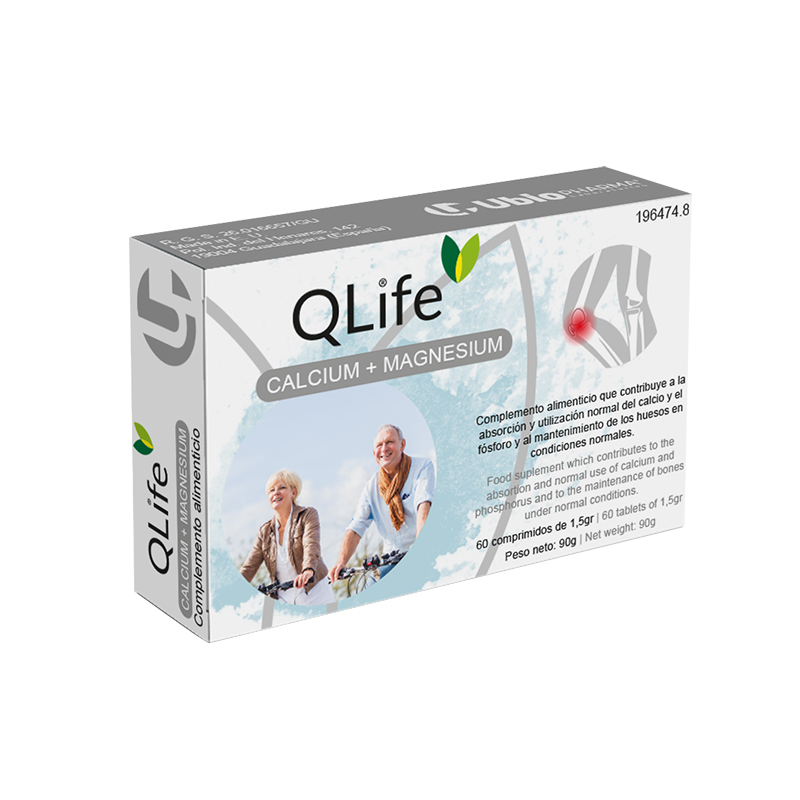 QLife Calcium&Magnesium contributes to the maintenance of normal bones.
QLife Calcium&Magnesium contributes to the maintenance of normal bones.
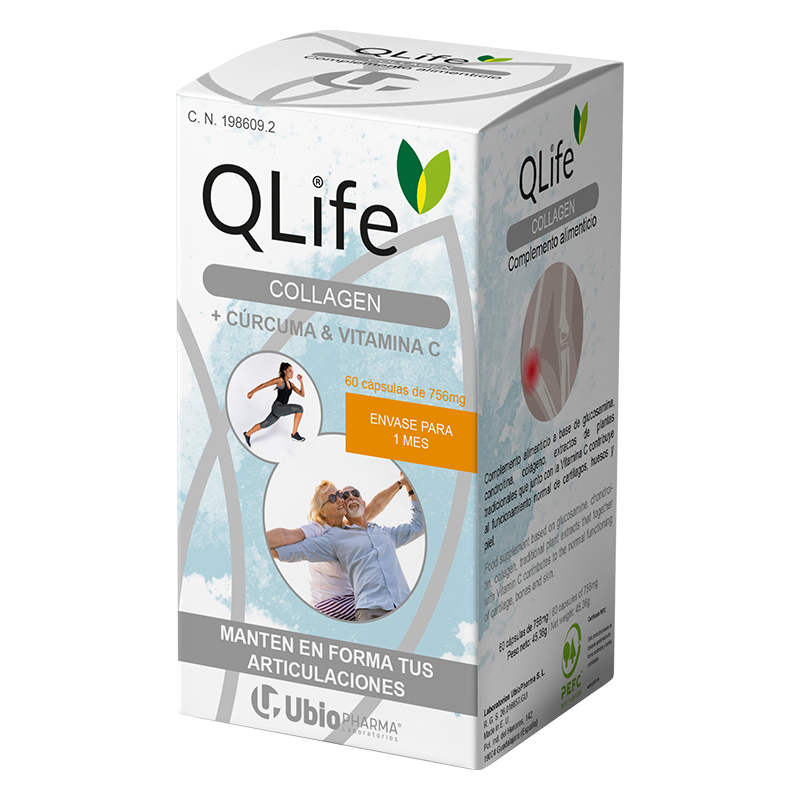 QLife Collagen contributes to the maintenance of normal joints.
QLife Collagen contributes to the maintenance of normal joints.
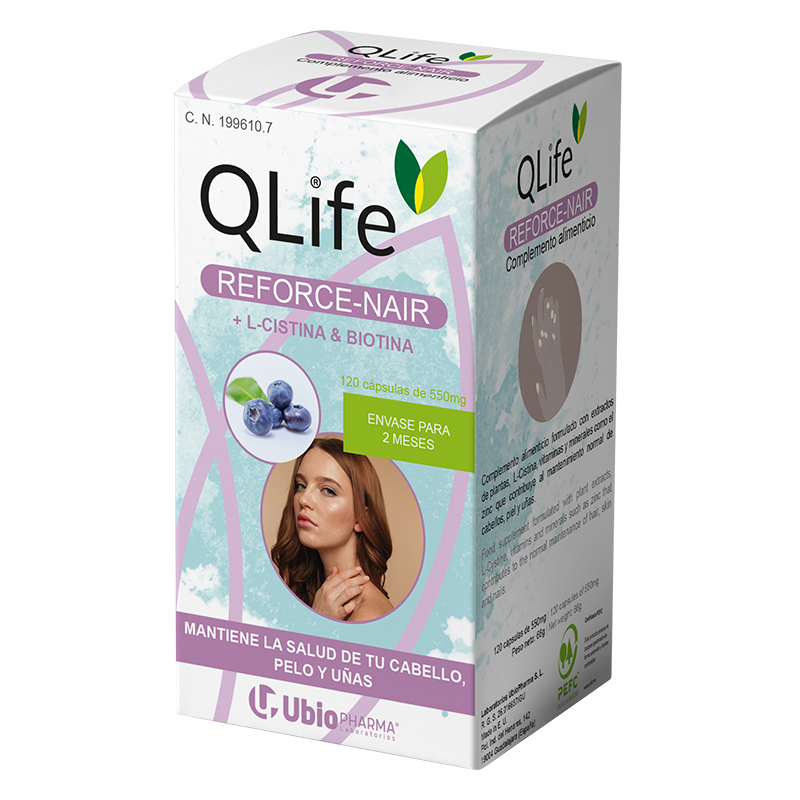 QLife Reforce-Nair helps maintain healthy hair, skin and nails.
QLife Reforce-Nair helps maintain healthy hair, skin and nails.
Remember that gaining weight is not compulsory. It is true, let's not kid ourselves, that the metabolism slows down and it is more difficult to burn fat. But if you maintain a varied and healthy diet and do some kind of physical activity on a regular basis, there is a good chance that you will not gain weight.
It is recommended to increase the proportion of protein, fruit and vegetables. Tobacco, alcohol, fats and sugars can worsen symptoms, so reduce them as much as possible.
As for physical activity, both aerobic and muscular endurance exercises are recommended.
Finally, supplementing your diet with calcium can help keep your bones stronger.
Oh, and your period is over but not your sex. The menopause sometimes causes vaginal dryness and decreased libido due to lower oestrogen levels, but these are symptoms that can be treated and improved. With these treatments you will help to moisturise your intimate area and make it more flexible. And enjoy!
One last question...
Men don't have menopause?
No, not as such. We have already seen that the menopause is the end of menstruation. What men go through is known as andropause. This is the stage between the ages of 40 and 55 and is when men experience a decrease in testosterone. This decrease also affects them with a series of changes and symptoms such as: loss of libido, erectile dysfunction, irritability, loss of muscle and bone mass, weight gain, fatigue and difficulty concentrating.
As you can see, some of these symptoms are similar to those suffered by women during the menopause, and can be prevented and treated to improve the quality of life during these years.

